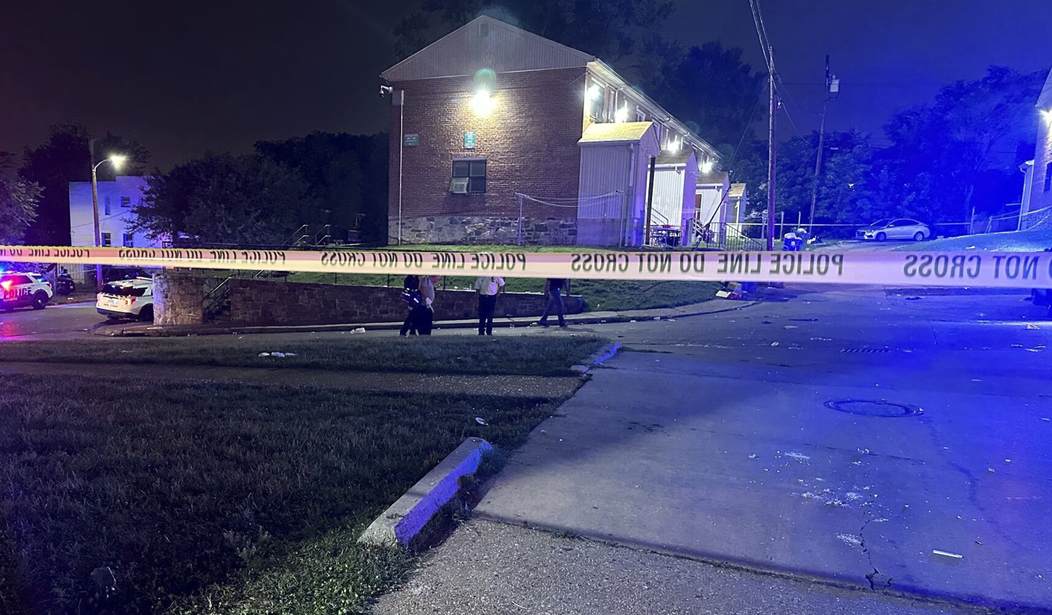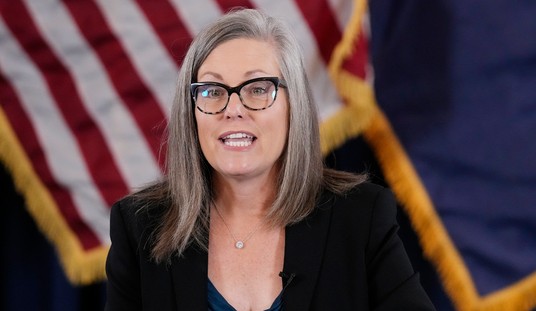Baltimore is one of the more violent cities in the United States, but it's not as violent as it was just a couple of years ago.
That's very good news no matter how you cut it.
The problem is that now that homicides are down, people are trying to figure out why. After all, you want to double down on what works and you want to give credit to the politicians responsible, if there are any.
And an op-ed at the Baltimore Sun argues that one person shouldn't be too quick to claim credit.
In fact, there's little reason to believe the mayor had much of anything to do with it.
The question is: Why, and who gets the credit? Running for reelection, Mayor Brandon Scott frequently credits his own Gun Violence Reduction Strategy (GVRS). The problem is Scott’s evidence of success is shaky.
Scott’s ambitious goal to reduce homicides and shootings by 15% every year of his tenure was a welcome rejection of the normalization of Baltimore’s endemic violence. But it was magical thinking— both murders and shootings actually rose in his first year, and they remained flat in his second year.
Undeniably, homicides dropped 22% last year, in Scott’s third year. That achievement coincided with the installation of a new tough-on-crime city prosecutor, Ivan Bates, and increasing cooperation with the new federal prosecutor, U.S. Attorney Erek Barron, who notably is using COVID-19 fraud prosecution as a pretext for locking up killers.
Homicides dropped 10.4% last year in the country’s largest cities according to the Major Cities Chiefs Association. And they fell significantly in similar-sized cities to Baltimore — falling 33% in New Orleans, 18.4% in Detroit, and 20% in St. Louis.
So it's entirely possible that Scott's pet project, GVRS accomplished nothing based on what we've seen in other cities similar to Baltimore.
Obviously, Scott disagrees. GVRS basically takes an approach of identifying potential shooters, offering them services to walk the straight and narrow, and a warning that if they cross the line, law enforcement will hammer them.
In Scott's opinion, as in the opinion of many others, this approach works.
In fact, he's touting a study that shows that his program accounts for 25 percent fewer shootings in the community it was implemented compared to what would have happened. (More on that in a second.)
The study has been variously touted, including by Scott, as “independent” and “external” — supposedly offering an unbiased view of GVRS’s effectiveness.
Yet, the agency overseeing the GVRS initiative, the Mayor’s Office of Neighborhood Safety and Engagement (MONSE), paid the University of Pennsylvania research team more than $600,000 in 2022 to design and implement the program, as well as “evaluate” it. The city approved another $2.2 million last September for the researchers’ work. The ostensibly independent evaluators even hired a former MONSE aide.
So, it is unsurprising that the people paid by the mayor’s office fully endorse the mayor’s program — that they designed and oversee.
The idea that they can accurately presume to tell us how many shootings would have happened is a clear indicator that there's a problem.
As noted, Baltimore's drop in homicides is on par with other, similar-sized cities. It's entirely possible that nothing actually helped except for nationwide shifts in external factors that contribute to homicide. That includes the possibility that the Bruen decision ending may-carry practices may have contributed to the reduction to some degree, particularly in an anti-gun state like Maryland.
So it's impossible to determine with any accuracy that what happened was a drop of 25 percent over what would have happened if the program didn't exist. There's no way to account for those external factors, for one thing.
But when someone paid for a study to look at the program they designed and oversaw, there's a strong motivator to use methods that will sound good and look plausible but will ultimately show more benefits than were actually realized.
Then the author pointed out that knocking on potential shooters' doors and telling them they're being watched and if they cross the line, law enforcement will descend upon them like the fiery hand of God might well account for any actual intervention from the program while the social services are shown to be a mixed bag.
Regardless, Scott should avoid taking too many bows, especially as this is the first drop in the homicide rate he's presided over despite this being his re-election year. He said he'd drop it annually and he didn't, which suggests his program and his methods aren't the winner he claims.








Join the conversation as a VIP Member